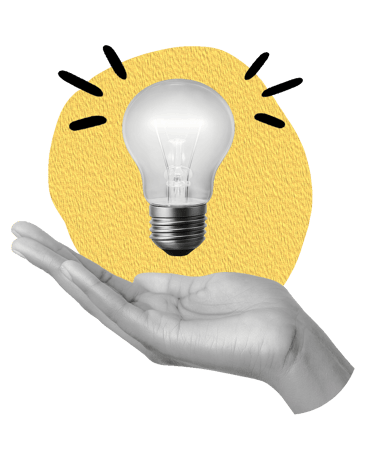
How can we support?

Our offering reflects the full spectrum of dimensions organisations need to address to build capacities for climate transformation:
the why, the what, and the how.
The 'what':
Build climate knowledge
Successful climate action depends on actionable and situational knowledge of core topics such as climate science, adaptation, transition planning, physical and transition risks, green finance, evolving policy and regulatory frameworks. We foster decision-oriented learning through:
Engaging, modular e-learnings covering the core elements of climate science, policy, adaptation, mitigation, green finance and organizational response.
Tailored capacity development programmes for building knowledge including leadership sessions and training.
The 'how':
Develop capacities for transition
The how is often the hardest part. We help organisations take stock of where they actually stand on capacities for climate action - identifying their current capabilities, knowledge gaps, and planning best way forward. We also help when climate ambition is high but direction feels fragmented. We offer:
Green skills audits to assess current capabilities and map future needs aligned with your climate goals.
Support in designing and delivering strategic capacity development, helping embed climate learning in organisations long-term.
AI-enabled and tech-based tools to scale knowledge, support decision-making, and facilitate collaboration across teams.
The 'why':
Align purpose
Transition is difficult when leaders and teams aren’t pulling in the same direction. Without understanding of how climate impacts an organisation and shared urgency of action, it is difficult to commit to necessary changes and investments. We help bridge that gap through:
Immersive, strategic games that simulate the consequences of different climate (in)decisions and explore real-world trade-offs, risks, and impacts.
Dialogue-driven workshops that help surface assumptions, build urgency, and foster alignment across functions and leadership.









We draw on change management principles to help engage teams, align leadership, and turn resistance into momentum. We see organizations as ecosystems, where meaningful climate action requires collaboration across silos, disciplines, and decision levels.
Sustainable learning systems
Co-creation and collaboration
Immersive learning
Transformation can't be outsourced. By co-creating capacity development strategies and interventions, we foster shared ownership, increase relevance, and ensure that outcomes are grounded in organisations' context and expertise.
Our approach responds to a growing need for deeper, experience-based learning that goes beyond slide decks and checklists. We facilitate educational games, simulations and interactive activities that bring learners together.
Learning isn’t just an add-on — it’s embedded in the organisation’s broader business transformation. When capacity development is disconnected from real change processes, it becomes performative and forgettable. Responding to climate change isn’t a one-time challenge — it will continue to evolve, and so must the knowledge and skills.
We use technology and AI to scale and customise learning and engage more people across roles and departments. In a fast-evolving climate landscape, AI is a valuable ally for staying on top of new data, policies, and trends.
Making good use of technology
Our approach











Examples of our projects
We work with Deloitte to support a multilateral development bank with its Climate Transition Programme for financial sector clients. This includes design and delivery of train-the-trainer materials for expert onboarding, co-delivery of workshops and sessions and strategic analyses to support decisions on the programme rollout, ensuring impact and business alignment.


For UNICEF, we developed a concept for participatory e-learning for building Ukrainian youth green skills. The topics covered included climate change impacts on the job market and green recovery potential, helping youth future-proof their skills amid evolving sustainability- and AI-driven job trends. This includes videos, self-assessment quizzes, and reflective learning tools.
Working for Ecorys, we moderated Annual High-level Political Dialogue in Coal Regions in Transition, supporting a project for DG ENER. This was an international hybrid conference (200+ participants), including high-level EU and national speakers, applying storytelling and large-scale engagement methods.



